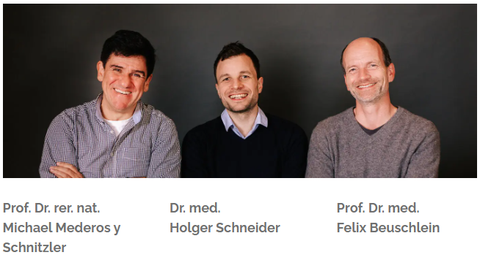Project B14
Reversibility of organ damage in primary aldosteronism: role of salt-dependent mechanisms
Primary aldosteronism (PA) is the most common form of endocrine hypertension, often detected late when significant heart, vessel, and kidney damage has occurred. We aim to understand and potentially reverse this organ damage by addressing three questions: how dietary salt amplifies aldosterone-induced injury; the activity of steroids beyond aldosterone in PA; and the cellular and transcriptional targets of aldosterone- and salt-induced damage.
To identify markers of salt status and co-mediators of organ injury, we will analyze proteomic changes in murine plasma and adrenals under salt challenge, correlate candidates with organ damage, and validate them in patients with PA. The pharmacology of the PA-steroidome will be studied using nuclear translocation assays, transcriptional reporters, and transcriptome analysis to assess activity at the glucocorticoid and the mineralocorticoid receptor. Aldosterone- and salt-induced transcriptional changes will be mapped by snRNA-seq in kidneys from a conditional PA mouse model. Promising therapies based on our previous results will also be tested.
Aims
(I) Outline the impact of dietary salt excess on the adrenal metabolome and define plasma markers for sodium status and their relation to cardiorenal phenotype in primary aldosteronism
(II) Define the individual pathogenic activity of abundant steroids in endogenous primary aldosteronism at the target cell level
(III) Determine the cell subtype-specific transcriptome in kidney fibrosis by aldosterone plus salt and the response of a model for bilateral PA to pharmacological and dietary strategies to reverse end-organ damage.
| Principal Investigators | Institution |
| Prof. Dr. med. Felix Beuschlein | LMU |
| Prof. Dr. med. Thomas Gudermann | LMU |
| Dr. med. Holger Schneider | LMU |
| Prof. Dr. rer. nat. Michael Mederos y Schnitzler | LMU |

Prof Dr Thomas Gudermann is not pictured.
